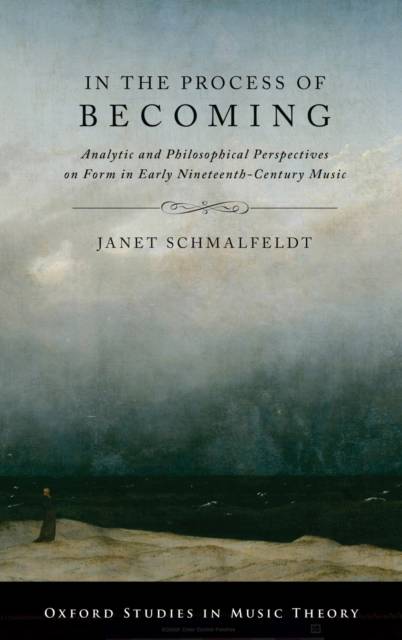
- Afhalen na 1 uur in een winkel met voorraad
- Gratis thuislevering in België vanaf € 30
- Ruim aanbod met 7 miljoen producten
- Afhalen na 1 uur in een winkel met voorraad
- Gratis thuislevering in België vanaf € 30
- Ruim aanbod met 7 miljoen producten
Zoeken
In the Process of Becoming
Analytical and Philosophical Perspectives on Form in Early Nineteenth-Century Music
Janet Schmalfeldt
€ 108,45
+ 216 punten
Uitvoering
Omschrijving
With their insistence that form is a dialectical process in the music of Beethoven, Theodor Adorno and Carl Dahlhaus emerge as the guardians of a long-standing critical tradition in which Hegelian concepts have been brought to bear on the question of musical form. Janet Schmalfeldt's account of this Beethoven-Hegelian tradition restores to the term "form" some of its philosophical associations in the early nineteenth century, when profound cultural changes were yielding new relationships between composers and listeners, and when music itself became a topic for renewed philosophical investigation. A recurring metaphor in early nineteenth-century philosophical writings is the notion of becoming. In the Process of Becoming explores the idea of "form coming into being" in respect to music by Beethoven, Schubert, Mendelssohn, Chopin, and Schumann. A critical assessment of Dahlhaus's preoccupation with the opening of Beethoven's "Tempest" Sonata serves as the author's starting point for the translation of philosophical ideas into music-analytical terms. Due to the ever-growing familiarity of late eighteenth-century audiences with formal conventions, composers could increasingly trust that performers and listeners would be responsive to striking formal transformations. Schmalfeldt's unique analytic method captures the dynamic, quasi-narrative nature of such transformations. This experiential approach invites listeners and performers to participate in the interpretation of processes by which, for example, brooding introduction-like openings become main themes and huge formal expansions offer a dazzling opportunity for multiple retrospective reinterpretations. Above all, In the Process of Becoming proposes new ways of hearing beloved works of the romantic generation as representative of a quest for novel, intensely
self-reflective modes of communication.
self-reflective modes of communication.
Specificaties
Betrokkenen
- Auteur(s):
- Uitgeverij:
Inhoud
- Aantal bladzijden:
- 344
- Taal:
- Engels
- Reeks:
Eigenschappen
- Productcode (EAN):
- 9780195093667
- Verschijningsdatum:
- 2/04/2011
- Uitvoering:
- Hardcover
- Formaat:
- Genaaid
- Afmetingen:
- 236 mm x 165 mm
- Gewicht:
- 612 g

Alleen bij Standaard Boekhandel
+ 216 punten op je klantenkaart van Standaard Boekhandel
Beoordelingen
We publiceren alleen reviews die voldoen aan de voorwaarden voor reviews. Bekijk onze voorwaarden voor reviews.











